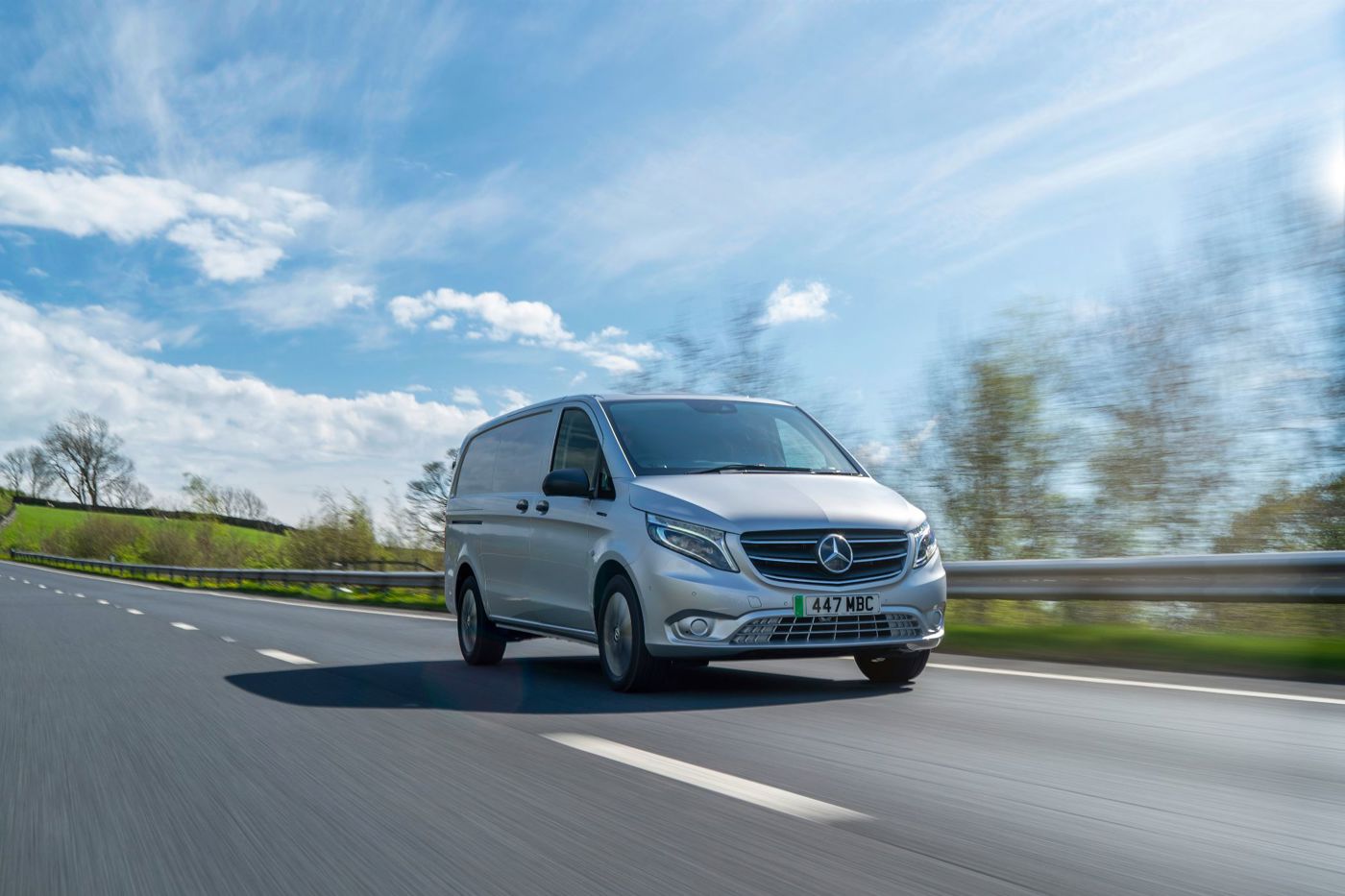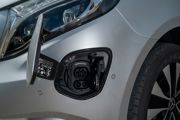Review
Mercedes-Benz was ahead of the game when it confirmed the electric Vito, back in 2018. Such is the pace of development in the sector, though, that it quickly became uncompetitive due to a poor range.
Thankfully, Mercedes-Benz Vans has addressed the biggest problem with the eVito and it now features a larger 66kWh battery.
It means the van can now comfortably cover 145 miles between charges (WLTP - 162), where the old model could barely manage 90.
There's also now the ability to rapid charge, meaning a 10% - 80% top-up takes around 30 minutes.
It’s been two years since we last drove the eVito and we're pleased to see that the vehicle has improved significantly.
Fleets can choose from two lengths (L2 and L3) and two trim levels (Progressive and Premium), with prices starting from £43,600 (CV OTR). There is also a £5,000 grant available from the Government to reduce the purchase price of the van.
The front-wheel drive eVito is powered by a 114PS electric motor, which provides lethargic performance. You really have to floor the throttle to get the van moving, especially when pulling out of junctions or onto roundabout. Once you get the eVito up to speed it's much happier and acceleration at higher speeds, such as on the motorway, actually feels more potent.
In terms of practicality, the Vito offers much the same as its diesel counterpart. The smaller L2 version has the same 6.0 cubic metre cargo capacity, while the L3 offers 6.6 cubic metres. This is due to the battery pack being integrated in the chassis.
The payload for the L2 is up to 807kg and the L3 can carry up to 749kg.
From the outside, it’s very much business-as-usual for the eVito. Having benefited from a minor facelift a c0uple of years ago, there is nothing but badging to tell them apart. The eVito’s charging port is located in the front bumper.
The interior is much the same too; other than the instrument cluster, which features a power usage meter rather than a tachometer.
Driving the eVito is a fairly relaxed affair. There’s no vibration or engine noise to worry about and the van is well sound-proofed for urban trips.
At motorway speeds, assuming you specify the removal of the 50mph speed limiter, the eVito is just as happy.
On country lanes, the weight of the batteries in the floor means the eVito handles well, with less body roll than we were expecting. The steering is light and direct too. It's a positive driving experience, other than having a rather laggy throttle response.
We found the range estimation of 145 miles to be quite accurate. After out test, the van was reporting an achieved 2.6mi/kWh - suggesting it was actually under-reporting its range and could potentially cover almost 160 miles.
All versions come with air conditioning, a heated driver’s seat and a touchscreen infotainment system. The Premium is offered in L3 only, costing £46,900 has body-coloured bumpers, electric folding door mirrors and front and rear parking sensors.
From a running cost perspective, the eVito costs around 52ppm over a five-year, 100,000-mile cycle. A Vauxhall Vivaro-e (75kWh), which has a 1,000kg payload, will cost 48ppm over the same cycle. The Mercedes, however, does include the brand's Mobilovan breakdown assistance.
Specs
| Manufacturer | Mercedes-Benz |
| Model | |
| Specification | Mercedes Evito L2 Electric FWD 85kW 66kWh Progressive Van Auto |
| Model Year | 2025.00 |
| Annual VED (Road tax) | £1035 |
| BIK List Price | £48,935 |
| Range | 162.00mile(s) |
| CO2 | N/A |
| Insurance Group | N/A |
| CC | 1 |
| Fuel Type | |
| Vehicle Type | Medium van |
| Luggage capacity (Seats up) | N/A |
Running Costs
| P11D | £48,935 |
| Cost per mile | 66.04ppm |
| Residual value | £7,775 |
| Insurance group | N/A |
| Fuel Type | |
| Cost per mile | 66.04ppm |
| Fuel | 3.10ppm |
| Depreciation | 60.36ppm |
| Service maintenance and repair | 2.59ppm |
Rivals
Info at a glance
-
P11D Price
£48,935
-
MPG
N/A -
CO2 Emissions
N/A -
Payload
N/A -
Load Volume
N/A -
Load Width
N/A -
Load Length
5,140mm -
Range
162.00mile(s)















 Diesel
Diesel












